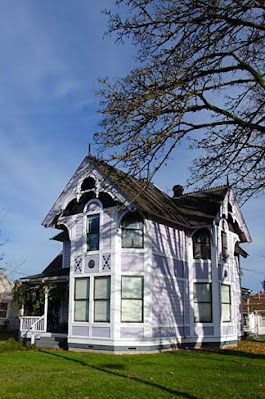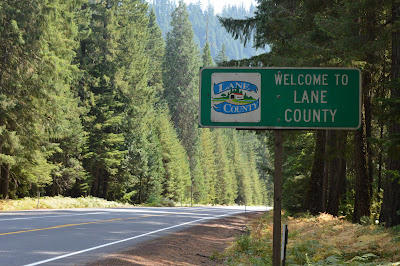Praying for Those in Authority: Polk County

Dallas House, Polk County, OR
Study to shew thyself approved unto God, a
workman that needeth not to be ashamed, rightly dividing the word of truth. II
Timothy 2:15.
We looked at Yamhill County last week. Moving south we
find ourselves in Polk County which was created from a portion of Yamhill on
December 22, 1845. It was named for the 11th President of the U.S.,
James K. Polk. The county seat is Dallas, named for Polk’s Vice-president.
Polk County includes the towns and communities of Grande Ronde, Rickreall, Eola, Fort Hill, Monmouth, Independence, Falls City and parts of Salem and Willamina. Forestry and agriculture are strong economic forces in Polk County with the western half or two-thirds heavily forested. The eastern half is in the Willamette Valley and has a lot of farms and vineyards.
Polk County was settled early, along with most of this
portion of the state, so there is much history here.
While some historical research has been done on the impact of the second Great Awakening on the settlement of Oregon, I’m not sure that we fully understand how profound that impact was. Of course, we know about the Methodists and Jason Lee, and the Presbyterians with the Whitmans and Spaldings who first established missions in the Northwest. The Catholics were encouraged to come, in part by Dr. John McLoughlin, himself with a Catholic background, to minister to the French Hudson Bay trappers who settled in the Willamette Valley. Little mention is made of the Reformation - or Campbellite - groups that were inspired to come during this period. These were the pioneers who established the Disciples of Christ, Christian, and Church of Christ denominations.
 |
| Polk County, OR |
When the four
Flathead Indians came to St. Louis in 1831 seeking the “Book of Heaven,” the
Reverend Samuel Parker, a middle-aged Presbyterian minister in New York, became
the first Presbyterian missionary to Oregon. He didn’t stay long, but scouted mission
locations with Dr. Marcus Whitman until Whitman returned east to prepare for
his move. Rev. Parker continued his tour of the Northwest then returned home to
report to the American Board of Foreign Missions on the situation. By then it
was 1836 and the Board thought Parker, at 57, was too old to go back, so he gave
talks on the needs of the far west and wrote a book.
One man, Tyrus Hines of Pennsylvania, was one who was
inspired by Rev. Parker’s information on the needs of the west. He was not
Presbyterian, however, but part a Christian Church and felt led to go to Oregon
and establish a Christian school, all on his own. He and his family started the
trip in 1846, but only got as far as Lafayette, Illinois where he had to stop
for several years due to poor health. However, while there, he talked up his
idea to fellow church members in Lafayette and nearby Monmouth. Those men took
up the cause and by 1850 several had moved to Polk County and taken up
adjoining land claims. By 1853 more had come and they selected the town site for
Monmouth, named after their hometown in Illinois. They didn’t forget their original
purpose, however, and on January 18, 1856, the territorial legislature granted
them – all Christian Church men – a charter for Monmouth University and they
began construction of the first buildings. This is now Western Oregon
University. In 1878 this group built the first church building in Monmouth as well, the
congregation having met on the college campus until then.
Currently, Polk County is governed by a Board of
Commissioners made up of Craig Pope, Lyle Mordhorst, and Jeremy
Gordon. Commissioner Pope was born in Albany and has lived his whole life
in the mid-Willamette Valley. He grew up on a grass seed farm and was first
elected to the Board in 2010. He was a volunteer firefighter for 25 years and awarded
“Firefighter of the Year” in 1998. He has also received several other
citations, certifications, and awards.
Lyle Mordhost was appointed commissioner in 2019.
Originally from Grangeville, Idaho, he wound up in Polk County due to his
career with Les Schwab Tires. He is now retired but believes in the importance
of being involved in community.
Jeremy Gordon was first appointed in 2021, then
elected to a four-year term in 2022. He was mayor of Falls City 2017-2021 where
he currently resides.
Mark Garton
has been the sheriff of Polk County since 2015. He has worked in a variety of
positions for the Polk County Sheriff’s Office for 18 years. Recently, Jodi
Whiting, the Polk County Animal Control Officer, was given the Animal
Control Officer of the Year Award by the Oregon Animal Control Council.
The District Attorney is Aaron Felton, the
County Assessor is Valerie Patoine, and the County Clerk is Val Unger.



Comments
Post a Comment